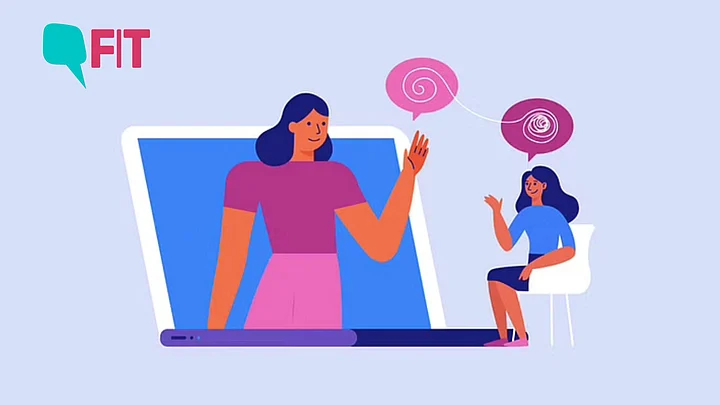The Covid-19 pandemic has changed the way people view mental health – it has made people realise the importance of seeking help.
The same period has also seen the rise of ‘digital therapists’ – with not just mental health professionals but also influencers who have taken to social media to create awareness.
While creating awareness is always a welcome step, if the ‘education’ provided is inaccurate, it can do more damage than helping the person who has sought assistance.
To put it simply, providing mental health awareness, and diagnosis must come from licensed therapists, psychologists, and psychiatrists.
Not individuals who have no qualifications, but merely have a following.
How Therapists Diagnose
Traditionally, a therapist or a psychologist would give their diagnoses based on the background narrated by the patient or the caretaker who has escorted the patient to the therapist or psychologist.
A guide is followed to minimize the errors while providing diagnoses, tests are conducted, and finally a treatment plan with the type of therapy that could be used is noted down.
This Guide is called the DSM 5, i.e. the diagnostic and statistical manual, and is used by therapists, counselling psychologists, clinical psychologists, social workers and other mental health professionals.
The DSM also takes into account whether the disorder is temperamental, environmental, genetic, and physiological – the culture, gender and sexuality of a person is also taken into consideration.
Before talking to a patient, an MSE (mental status examination) is conducted. It is a structured way of observing and describing a patient’s current state of mind – following which, the patient’s history of physical and mental health is recorded.
The patient is also made to undergo certain psychological tests.
It is only after these observations, additional notes, and tests that the symptoms are matched with what is mentioned in the DSM.
Following this, the treatment plan is made and sessions are provided.
Quick Fix On Social Media, Not Recommended
While scrolling through social media, you will come across many videos – especially on Instagram.
As a psychologist, the alarming videos I have come across say: ‘Here are five reasons for anxiety’, ‘The 10 reasons you have depression’ – by the so-called influencers, which is nowhere in accordance to the diagnostic manual.
Even if the symptoms match, the reasons behind them differ.
For example, the symptoms of depression due to the loss of a job, symptoms of depression due to a physical deformity and symptoms of depression due to the loss of a person by death.
These will have different timelines for healing, different intensity, therapy styles, and treatment plans which cannot be addressed over a reel.
Other than diagnoses, many influencers are also reaching out to support mentally distressed individuals – for a fee.
Taking help and advice from an influencer regarding mental health-related problems is like consulting an actor about your dental problems. It’s not a good idea.
Someone sharing their experiences and what helped them get through a situation is perfectly fine, and others may find it relatable as well. But labelling it as a symptom or a diagnosis is wrong.
For instance, I came across a video where someone said “If you like cleaning a lot, you have an OCD”. No, they don't! They just like to keep things clean around them.
OCD is not just limited to cleaning and because of that video, the others who weren't aware of OCD assumed that they had OCD.
Why Is Therapy On Instagram Dangerous
There are certain things only a psychologist or a trained mental health professional knows. I handle a page on Instagram as well, called @mymindgains but you won't find diagnoses there.
Nevertheless, you will definitely find solutions to common problems that do not necessarily need diagnoses. You could find symptoms or the degree of the symptoms.
I often ask questions and prefer engaging with my viewers instead of just posting content.
I may talk to them but I still don't provide therapy over Instagram or any other social media platforms. If someone reaches out to me, a structured session is conducted.
Everyone comes from a different background, their perspective on the situation that they are going through will be different from someone else – and I reiterate, influencers are not qualified for this.
This practice is especially dangerous when it comes to people who are vulnerable to suicidal tendencies.
If the influencer playing a “mental health professional” does feel like helping, they can share numbers of psychologists – especially, those who provide care at a lower rate, for people from all walks of life.
Some even conduct free sessions.
Sharing the contact details of these psychologists would help the viewer get better than when the influencers say, “You can talk to me” – simply for more views and engagement on their social media handles.
Advice From A Mental Health Professional
Here's an advice from a mental health professional, it's best to know the person you are being vulnerable with – someone who is qualified, with a degree to attest to their qualification.
Make sure they are worthy of your trust, and don't get carried away by a social media influencer, and their following.
(Rita Mendonca is a clinical psychologist with over five years of experience. She is the Founder of My Mind Gains – a mental health and education service provider platform. She specialises in child counselling and guidance, CBT, REBT, aversion and desensitisation techniques. You can find her on Instagram at @mymindgains. This is a personal blog, and the views expressed above are the author’s own.The Quint neither endorses nor is responsible for them.)
(At The Quint, we question everything. Play an active role in shaping our journalism by becoming a member today.)
